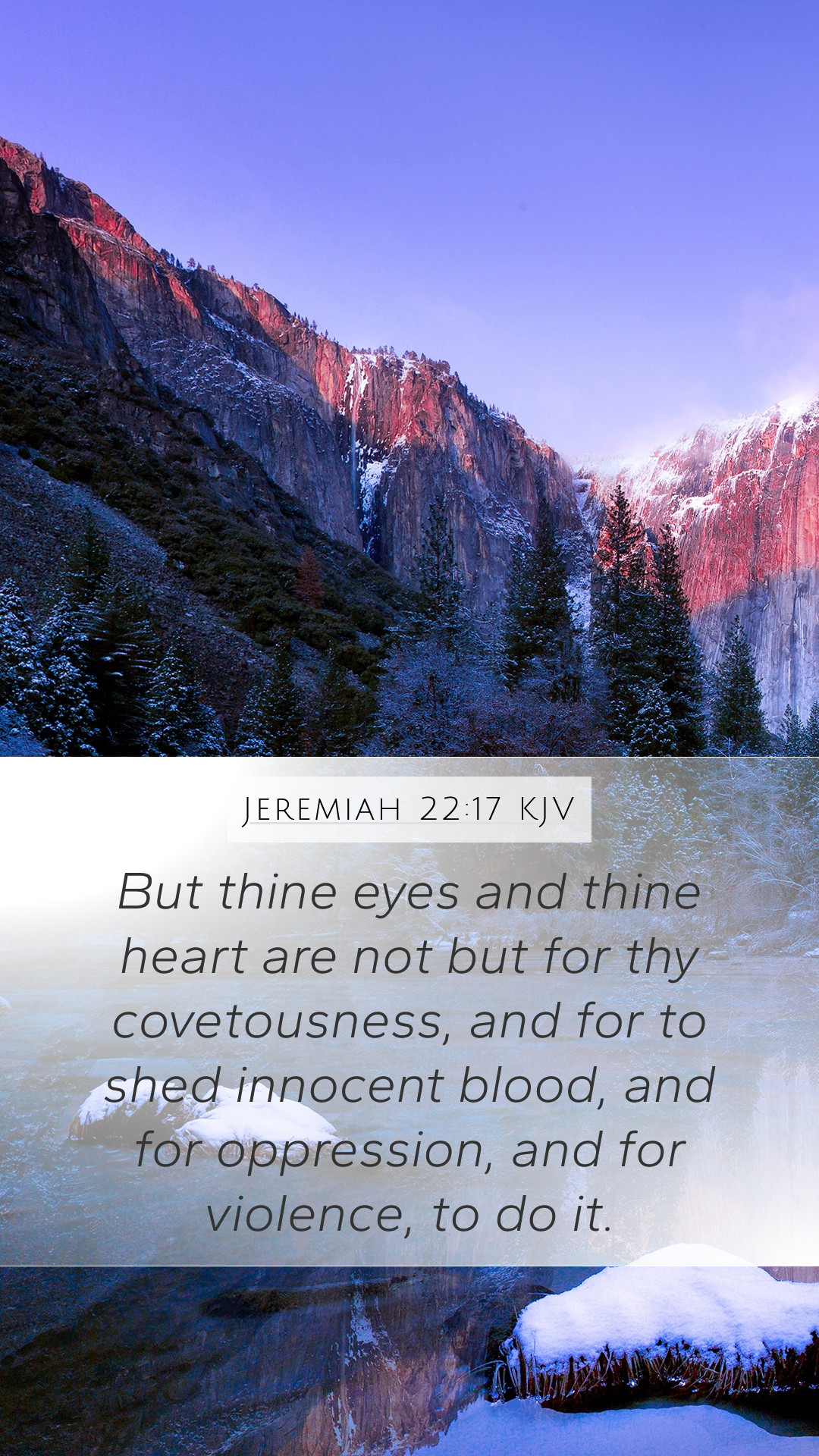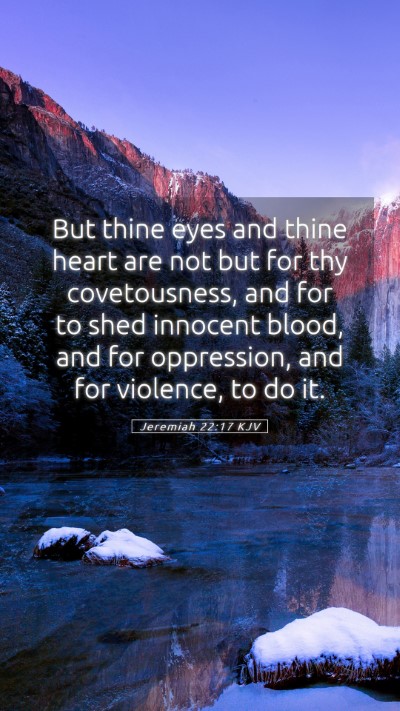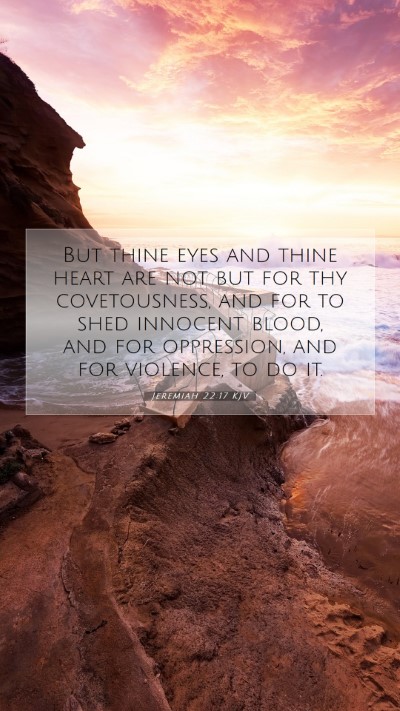Understanding Jeremiah 22:17
Bible Verse: Jeremiah 22:17 - "But thine eyes and thine heart are not but for thy covetousness, and for to shed innocent blood, and for oppression, and for violence, to do it."
Overview of Jeremiah 22:17
This verse serves as a significant indictment against the ruler of Judah, illustrating the moral decline and corruption of leadership during this period. The prophet Jeremiah addresses the insatiable greed and the bloodshed perpetrated by those in power, emphasizing the consequences of such actions.
Insights from Public Domain Commentaries
-
Matthew Henry's Commentary
Henry highlights the heart's depravity illustrated in this verse. He points out that the king's desires are entirely self-centered—focused solely on covetousness and violence. This reflects a broader principle that any leader who neglects justice and commits acts of oppression will face judgment.
-
Albert Barnes' Notes
Barnes emphasizes that the king's vision and motivation were corrupted. His 'eyes and heart' symbolize the desires and intentions that are divorced from righteousness. Barnes elaborates on the importance of leadership that reflects God's justice and mercy, revealing that such greed leads to societal decay.
-
Adam Clarke's Commentary
Clarke interprets this verse in light of the social injustices prevalent in the time. He comments on the severity of the charges, linking them to the overarching theme of God’s indignation against powerful figures who disregard the sanctity of life and oppress the vulnerable. Clarke also discusses the historical context of the scripture, noting the impending judgment pronounced through Jeremiah.
Thematic Analysis
Jeremiah 22:17 speaks volumes about the significance of just leadership and the dire consequences of corruption. The verse conveys the message that:
- Leadership should prioritize integrity and justice.
- Cultivating a heart directed towards compassion rather than selfish desires is crucial.
- Societal peace is jeopardized by oppression and violence.
Application of Jeremiah 22:17
For individuals seeking to apply the teachings of Scripture in their lives, this verse serves as a powerful reminder of the personal and collective responsibility to foster justice and mercy. Here are some practical applications:
- Engage in Ethical Leadership: Whether in a community, workplace, or personal relationships, aim to lead with integrity and fairness.
- Advocate for the Oppressed: Use your voice and resources to support those who are marginalized or victimized.
- Self-Reflection: Regularly examine your motives and desires to ensure they align with values of compassion rather than selfish ambition.
Historical Context
The context of Jeremiah's prophecies highlights a period of significant moral and national decline in Judah. The leaders were supposed to guide and protect the people but instead fostered an environment of greed and violence, leading to dire consequences, which Jeremiah foretold.
Related Bible Cross References
- Proverbs 28:16: "The ruler that wanteth understanding is also a great oppressor: but he that hateth covetousness shall prolong his days."
- Isaiah 1:23: "Thy princes are rebellious, and companions of thieves: every one loveth gifts, and followeth after rewards: they judge not the fatherless, neither doth the cause of the widow come unto them."
- Micah 6:12: "For the rich men thereof are full of violence, and the inhabitants thereof have spoken lies, and their tongue is deceitful in their mouth."
- Ezekiel 34:4: "Ye have not sought that which was lost; but with force and with cruelty have ye ruled them."
Conclusion
Jeremiah 22:17 serves as a timeless lesson about the moral responsibilities of leadership and the dire consequences of prioritizing personal gain over justice. By understanding the meaning of this verse, individuals and communities can strive to embody the principles of righteousness, thus fostering environments that reflect God’s will and promote peace and justice.


